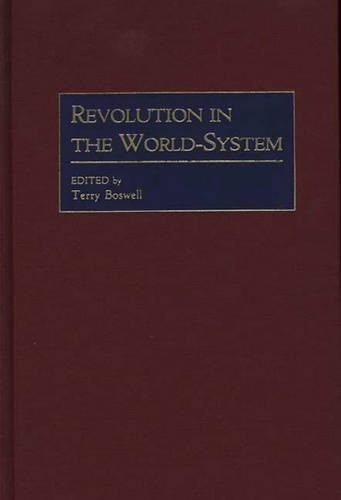
Revolution in the World-System
(Hardback)
Publishing Details
Revolution in the World-System
By (Author) Terry Boswell
Bloomsbury Publishing PLC
Praeger Publishers Inc
25th July 1989
United States
Classifications
Tertiary Education
Non Fiction
909.82
Physical Properties
Hardback
253
Description
Seventy-one of the 168 member nations of the UN were rocked by insurgency during the past decade. Among the most overwhelming of the conflicts were full-scale civil and separatist wars in Afghanistan, Angola, Cambodia, El Salvador, Ethiopia, Indonesia, Mozambique, Peru, the Philippines, Somalia, and the Sudan. In light of the fact that major civil wars also occurred in 21 independent countries during the 1970s, 13 countries during the 1960s, and 14 countries during the 1950s, it seems clear that the current prevalence of revolutions world-wide reflects a growing trend in world affairs. This volume grew out of the twelfth annual Political Economy of the World-System Conference, War and Revolution, held at Emory University. It consists of entirely original research from a variety of perspectives and disciplines and provides world- systematic, comparative historical and case study analyses of revolutions and the prolonged development of structural dynamics and political processes that give rise to these upheavals. The contributors emphasize the importance of viewing revolution from a global perspective with careful attention to the political and cultural dimensions as well as the economic factors involved. Following an introduction by editor Terry Boswell, the work is divided into four sections: world revolutions, comparative studies of revolution, case studies of social revolution in Nicaragua and Iran, and case studies of revolutionary situations in Poland, Chile, and South Africa. An afterword by former U.S. President Jimmy Carter completes the volume. This work provides an important interdisciplinary perspective on intranational strife in the modern world, and will be useful in college and university courses in political science, world affairs, history, and sociology.
Reviews
This collection of articles ranges from case studies of revolutions (Nicaragua, Iran) and revolutionary situations (Southeast Asia, Angola, Cuba, Mozambique, and Nicaragua) and world revolutionary trends. In general, the analyses are interesting and original. They all represent the world-system' theoretical perspetive associated with Immanuel Wallerstein (The Politics of the World Economy) at present enjoying growing influence in the historical social sciences. The essays are valuable, each on its merits and together as a sampling of the world-system' approach. Although primarily for readers who are theoretically inclined and already somewhat informed on the subjects addressed, this book would be a useful addition to any college collection.-Choice
"This collection of articles ranges from case studies of revolutions (Nicaragua, Iran) and revolutionary situations (Southeast Asia, Angola, Cuba, Mozambique, and Nicaragua) and world revolutionary trends. In general, the analyses are interesting and original. They all represent the world-system' theoretical perspetive associated with Immanuel Wallerstein (The Politics of the World Economy) at present enjoying growing influence in the historical social sciences. The essays are valuable, each on its merits and together as a sampling of the world-system' approach. Although primarily for readers who are theoretically inclined and already somewhat informed on the subjects addressed, this book would be a useful addition to any college collection."-Choice
Author Bio
TERRY BOSWELL is Assistant Professor of Sociology at Emory University. He is coeditor of American's Changing Role in the World-System (Praeger, 1987), and is currently researching the effects of economic and political dependency on violent rebellion.
